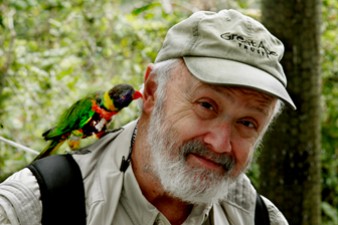
|
William H.
Calvin
|
William H. Calvin, a professor at the University of Washington School of Medicine, is the author of 16 popular books on science, mostly about brains, evolution, and climate change.
|
Since my peer-reviewed book Global Fever: How to Treat Climate Change (University of Chicago Press 2008; now in Kindle), I have been working on the closing window of opportunity—the time available to do something effective about the overheating and its knock-on effects such as deluge and drought.
There are three reasons why our approach to the climate crisis needs to be
refocused:
So our response to climate change must be big, quick, and secure. All three.
This narrows the effective interventions to those involving ocean productivity
and storage. My two new “brief books” for general readers cover the subjects:
The Great Climate Leap:
A Climate Surprise is Like a Heart Attack
The Great CO2 Cleanup:
Backing Out of the Danger Zone.
And there are now YouTube videos of my recent talks aimed at general audiences:
Climate Denial:
Humanity's Fatal Flaw? Psychological factors are now playing a key role in
our failure to address the looming climate crisis. While analyzing what's going
on the psychology, I'll summarize the climate science that's being denied,
including the knock-on consequences of global overheating that we're already
suffering from.
The Second Opinion:
What to Do About Climate. For physicians, the window of opportunity for
intervening successfully has become part of their training; they know how
fleeting an opportunity can be. So here's a "second opinion" about the climate
diagnosis, the prognosis if untreated, and what treatments might actually fix
the climate problem—rather than merely delaying civilization's collapse by a few
decades.
For those wanting more specifics on how rapid carbon sequestration might be done
via plankton plantations, see
The Great CO2 Cleanup
(the three chapters ending with "Pros and Cons") or the video of my talk to the
University of Washington’s Chemical Oceanography Seminar:
Carbon sequestration must be big and quick.
This what-to-do-about-it lecture focuses on the abrupt climate changes since
1976, how to head off more, and how to use the oceans to sequester enough
carbon. Several slides are for the experts, but the rest is suitable for a
general scientific audience. Others familiar with the climate story will be able
to follow it as well.
I hope that you can help me get this discussed more widely.
Best wishes,
-Bill
William H.
Calvin
University of Washington, Seattle
WCalvin@UW.edu
WilliamCalvin.org